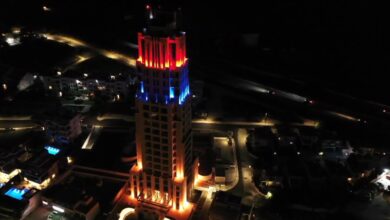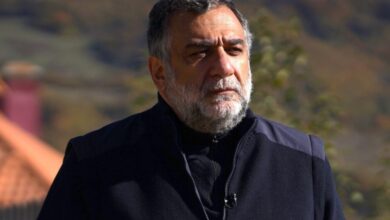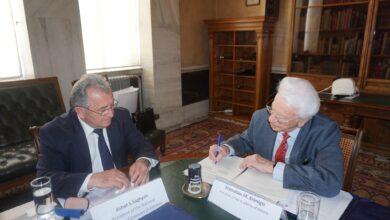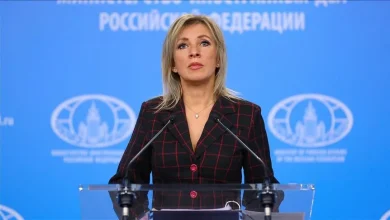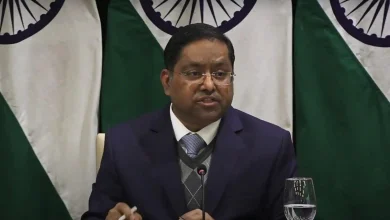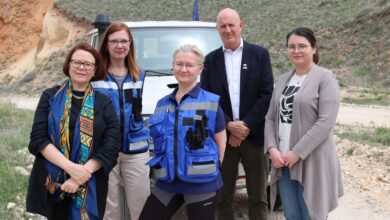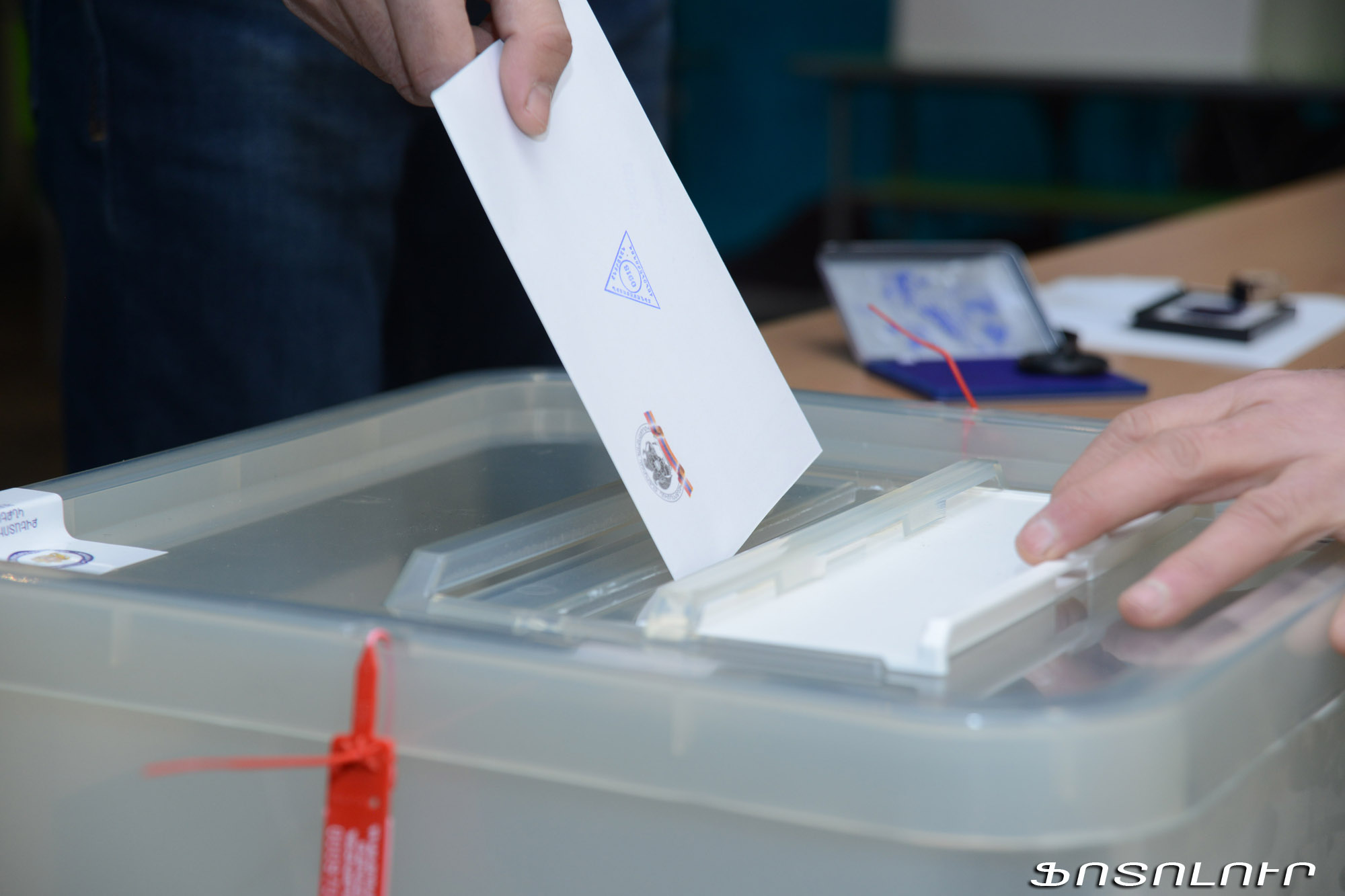
In a new report on the presidential election in Armenia, a British-led team of parliamentary experts confirm their initial findings that voting was ‘free, fair and transparent,’ New Europe informs.
The team, consisting of sitting and former MPs and parliamentary correspondents, was invited by Armenian NGO the Free Society Institute to oversee the 18 February elections. The mission was two-fold: to observe and comment on the election, and to compile the views of all other international observer teams.
The resulting report. to be published next month, says,”The election was the most observed election ever in Armenian history. OSCE had the most, with 263 observers present, and representatives at every polling station. The next largest observer team was from the CIS (with 212 observers) and many other NGOs and other interested parties from both within Armenia and internationally also had groups of observers present, with groups representing a broad diversity of underlying political and religious views.
“Although all teams that we’ve heard from have reported observing some election violations, none witnessed anything sufficiently serious or widespread as to cast any doubt on the election result.”
One of the team, former UK MP Paul Keetch said, “We commend the Armenian authorities for encouraging the involvement of such a wide variety of observers. The presence of diverse observer teams, from a multiplicity of political and cultural backgrounds, is a vital check on misbehaviour.”
The group’s comments follow the European Commission’s annual progress report this week on its European Neighbourhood Policy. The Commission noted approvingly of Armenia’s continued progress in reforming its judiciary and fighting corruption in general, and said that on the basis of ‘more for more’, Armenia’s progress will qualify it for additional EU funds for the upcoming year. The executive also praised Moldova and Georgia, but either avoided discussing or criticized the other three countries being reviewed (Azerbaijan, Belarus and Ukraine).
Jose Manuel Barroso, commission president, in a letter of congratulations to the Armenian President wrote, “I welcome the improved conduct of the elections and further progress in efforts to bring the democratic process into line with international standards” and noted his confidence in further progress continuing at developing closer ties between the EU and Armenia.
Keetch draws attention to one deficiency,though, saying, “It is perhaps a good thing that there were many teams of observers present, because – alas – there was one observer group notably absent. The international media. The Armenian election earned little more than a tangential and brief mention in most international media, and although this could be argued to reflect credibly on the normalcy and uncontroversial nature of the election, some more consideration would have helped ensure a greater feeling of accountability locally.”
The report goes on, “There are many reasons to feel positive about the election result. Unlike the previous election with rioting in the streets and a subsequent 20 day period of emergency, the population as a whole accepted the outcome with no more than the inevitable minimal levels of complaint, little more than can be found in any election in any country. Not only does the election result seem to match the general public expectation, but it has been confirmed repeatedly by being consistent with pre-election opinion polling and post-election exit-polling, both of which came surprisingly close to predicting the actual outcome.
“Furthermore, with the clear outcome showing 59% to victor Serzh Sargsyan and 37% to second placed Raffi Hovhanisyan, it would have required an improbably vast amount of fraud to have created such a significant outcome and no observers perceived anything remotely approaching such a huge undertaking. On the other hand, the occasional minor imperfections that were noted may have in total moved the scales no more than one percentage point (and it is unclear if the noted inconsistencies consistently favored any one candidate or if they were evenly distributed across several candidates) and so the result can be considered to be reasonably ‘fault tolerant’.
“The post-election complaints and protests are notable for comprising one of two clear themes. The first theme is ‘the person I supported didn’t win, therefore the election must be unfair’. People advocating this line of reasoning, and being aggressively encouraged to do so by the losing candidates, offer no substantive explanation as to how it was that their candidate’s claimed rightful win was prevented.
“The second theme is ‘the person I wanted to vote for chose not to run, therefore the election must be unfair’. It seems some political figures felt they could have more influence by negatively not campaigning and instead then claiming their non-participation invalidated the election – a peculiar view because opinion polls had never registered more than at best a one or two percent share of support for such candidates.”
It goes on, “It is true that a couple of major potential candidates also did not stand. One, the former President Levon Ter-Petrosyan voluntarily withdrew, saying he was now too old to run yet another campaign (he is 68); the other, Gagik Tsarukyan, is believed to have made a calculated political decision to ‘keep his powder dry’ and rather than run unsuccessfully against the incumbent in this election, is expected to now figure prominently in the 2018 election when President Sargsyan will be required to step down after completing his two terms.
“We understand the disappointment people must feel when their candidate either did not stand or did not win, and we understand that in a young democracy, neither candidates nor the public as a whole have necessarily yet fully embraced all elements of the political process. But an undesired outcome is not the same as an invalid outcome, and as best we have searched for substance to support the sometimes vehement expressions of disappointment, we have failed to uncover any salient or significant issues.”
The report continues, “A formal appeal against the election result was filed by supporters of second placed Raffi Hovhanisyan in the Armenian Constitutional Court. After four days of proceedings and ten days of deliberation, the Court upheld the election as being valid.
“We also note that the two head figures in the Armenian Apostolic Church (94.7% of the country belong to this church) have accepted the election outcome and congratulated the President on his victory.
“It is interesting to note that although observers came from many different countries and although some were presumably more keen to see one presidential winner rather than another, there has been a heartening degree of consistency among the reports we’ve seen after the election. Indeed, many of the groups have yet to report at all, and it seems clear that in such cases ‘no news is good news’. From our unique perspective of both observing the election and observing the observers, we feel that both the election and its monitoring were conducted to a higher standard than some commentaries, prior to the event, might have suggested,” adds the report.
“The election process was generally well organized by the Armenian Central Election Commission, and all observers reported no problems exercising their rights of access and observation – the positive cooperation among polling station workers seemed to imply a transparency and honesty on their part. Voter queues were generally acceptably short, and we received very few reports of voters being improperly turned away or of polling stations running out of voting forms or any other procedural problems.”
The report also makes reference to the British observers’ “instinctive” reactions to what they witnessed. Immediately after election day, Keetch , a British Liberal-Democrat MP until he stepped down in 2010, said he had been an observer in elections from the US to Albania, and had even been physically ejected by Albanian authorities for his criticisms in a past vote.
Keetch concludes, “From what I could see, there is no question in my mind that this election was free, fair and transparent, and incorporated robust checks and balances designed to make it that way.”


